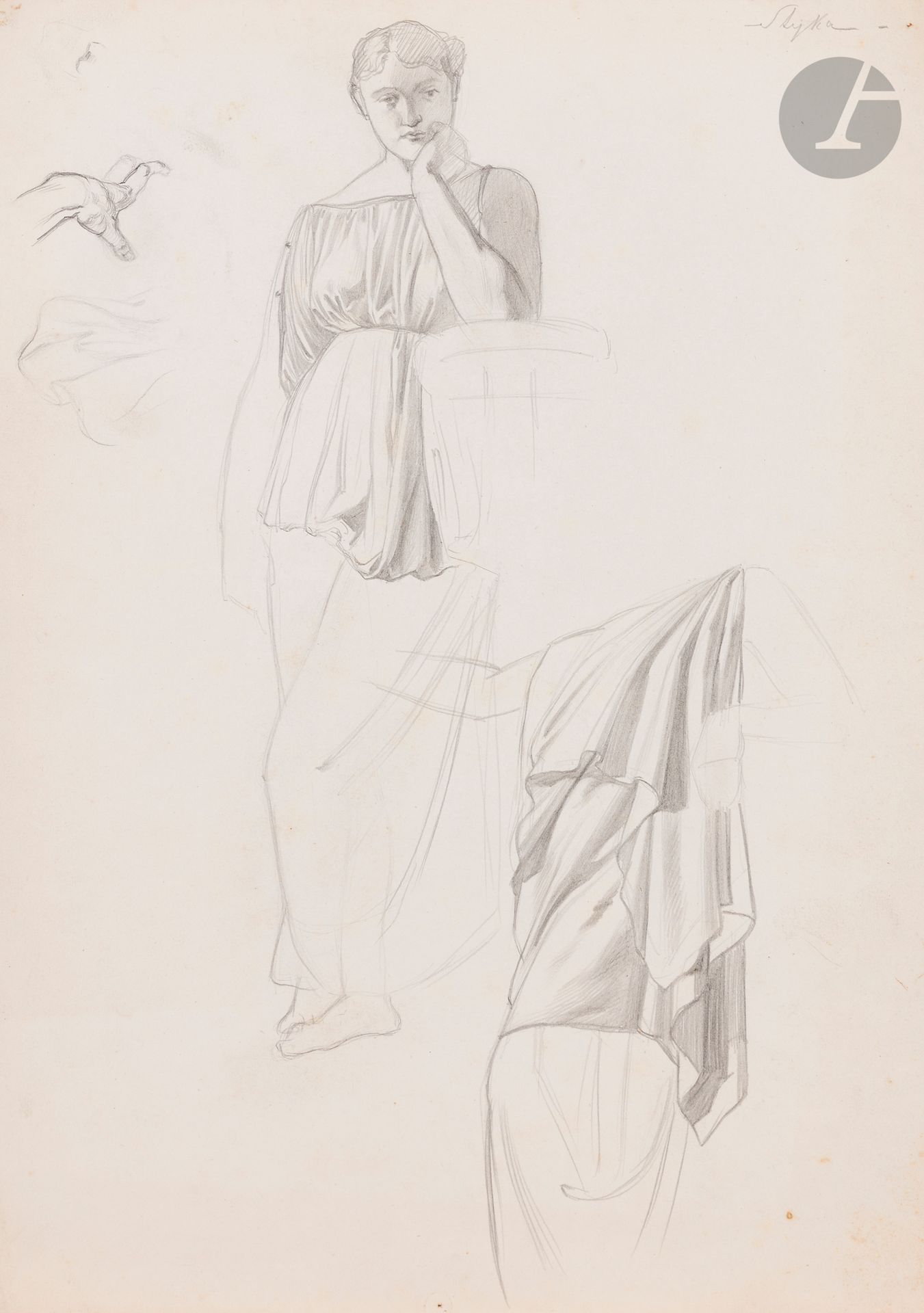Description
Jan STYKA (1858-1925) Batch of studies (4 sheets of which 3 recto verso) Lead pencils. Signed (2). From 41 x 29 cm to 48 x 31 cm [Kolekcja Paula Schlockoff] Paul Schlockoff's Styka - lots 6 to 27 The rich correspondence presented in lot 26 testifies to the close relationship Adam Styka maintained with family friend Paul Schlockoff. After emigrating to the United States in the late 1940s, Adam entrusted him with the management of his Parisian affairs. He also exchanges on his daily life and the members of his family. The set we are dispersing has since remained in Paul Schlockoff's family. Through these drawings and paintings, we discover the father, Jan Styka, a faithful student of Jan Matejko. In his work, he often evokes the martyred and torn Poland of the 19th century. He calls upon his great classical culture, his knowledge of mythology and religion. The works of Tadé and Adam, who received a solid education from their father, belong to a new generation, that of freedom and openness to the world. Adam's letters allow us to better understand the destiny of these men who devoted their lives to art without ever forgetting their homeland, even far from its borders.
13
Jan STYKA (1858-1925) Batch of studies (4 sheets of which 3 recto verso) Lead pencils. Signed (2). From 41 x 29 cm to 48 x 31 cm [Kolekcja Paula Schlockoff] Paul Schlockoff's Styka - lots 6 to 27 The rich correspondence presented in lot 26 testifies to the close relationship Adam Styka maintained with family friend Paul Schlockoff. After emigrating to the United States in the late 1940s, Adam entrusted him with the management of his Parisian affairs. He also exchanges on his daily life and the members of his family. The set we are dispersing has since remained in Paul Schlockoff's family. Through these drawings and paintings, we discover the father, Jan Styka, a faithful student of Jan Matejko. In his work, he often evokes the martyred and torn Poland of the 19th century. He calls upon his great classical culture, his knowledge of mythology and religion. The works of Tadé and Adam, who received a solid education from their father, belong to a new generation, that of freedom and openness to the world. Adam's letters allow us to better understand the destiny of these men who devoted their lives to art without ever forgetting their homeland, even far from its borders.
